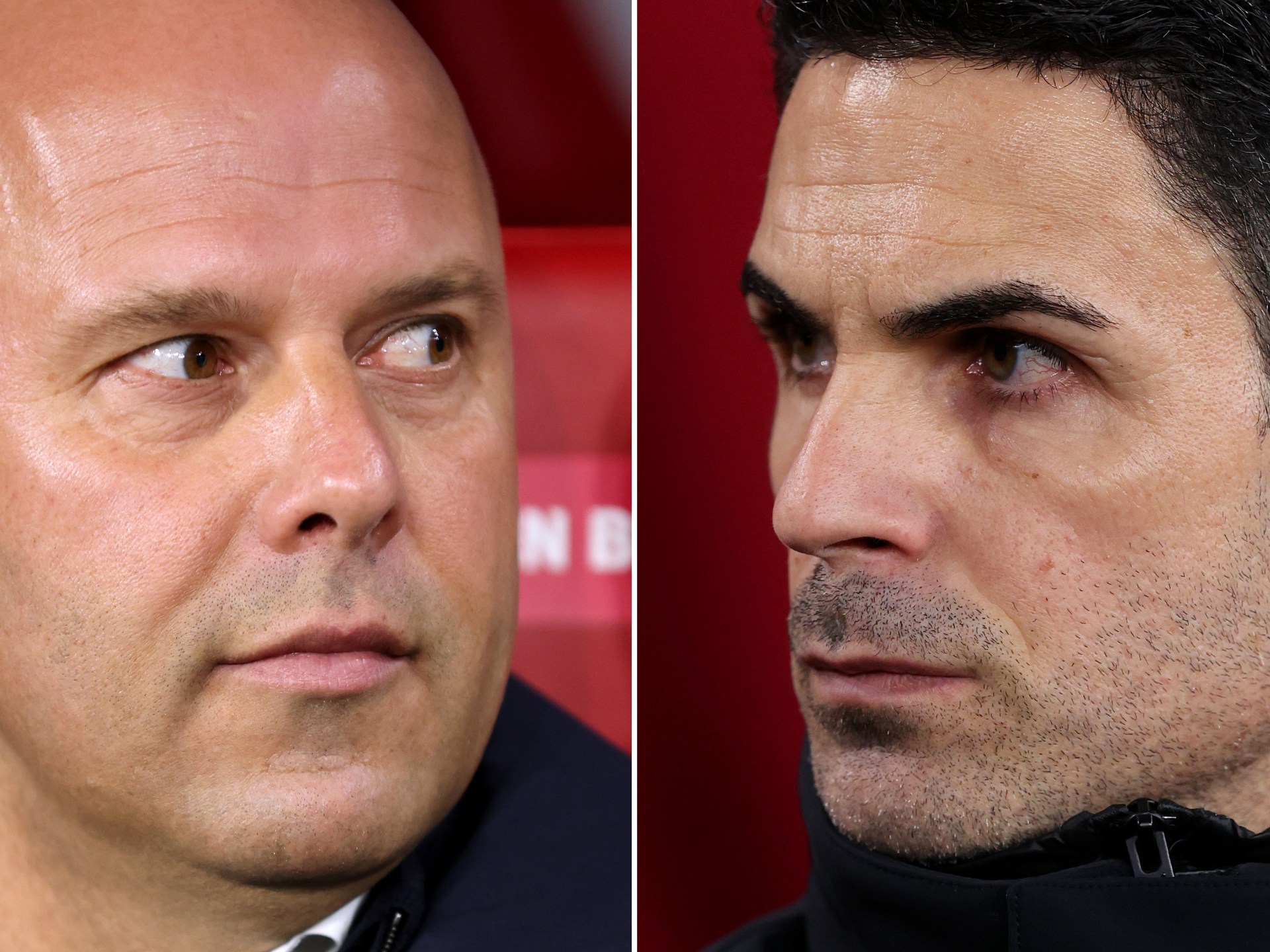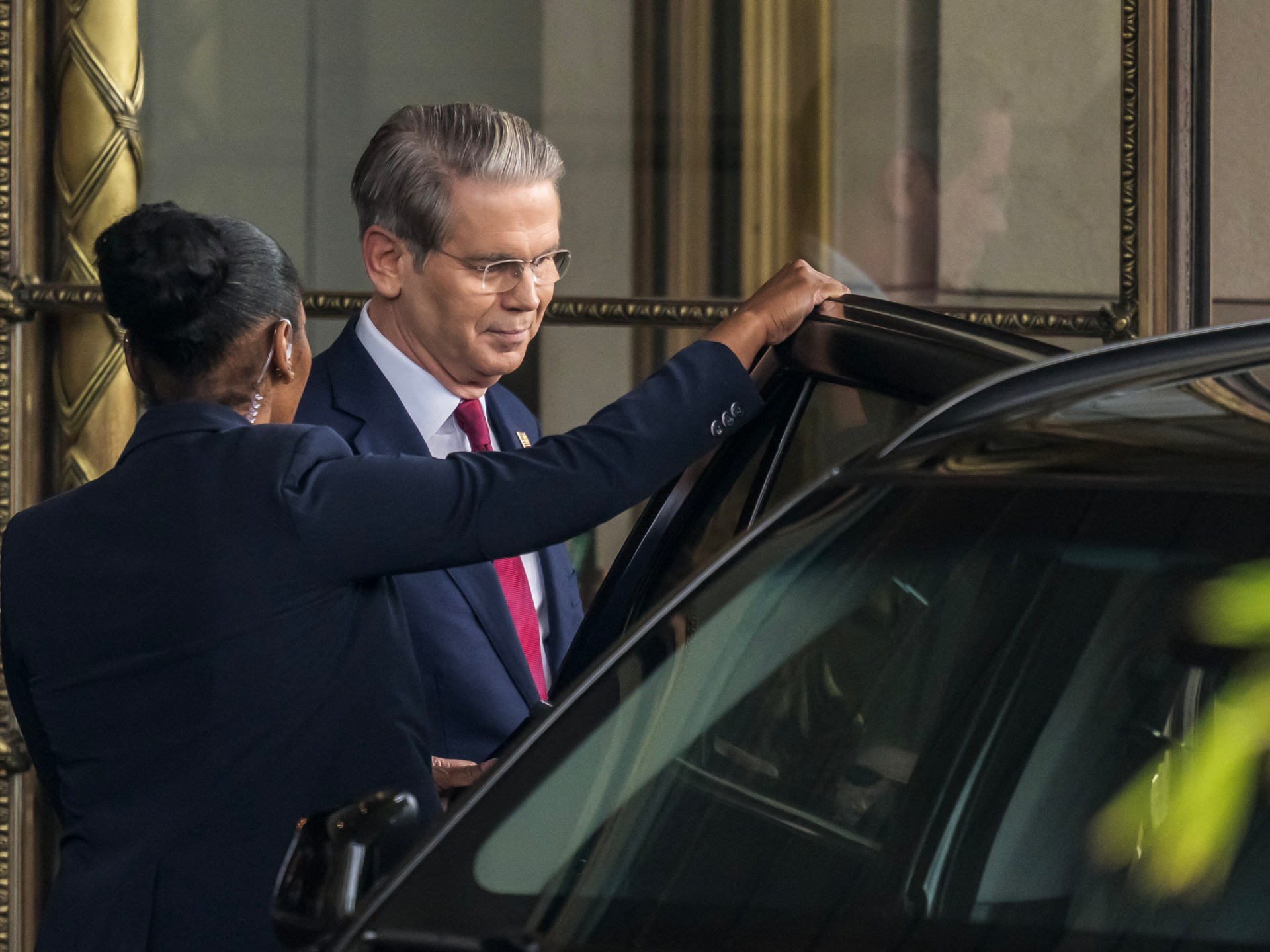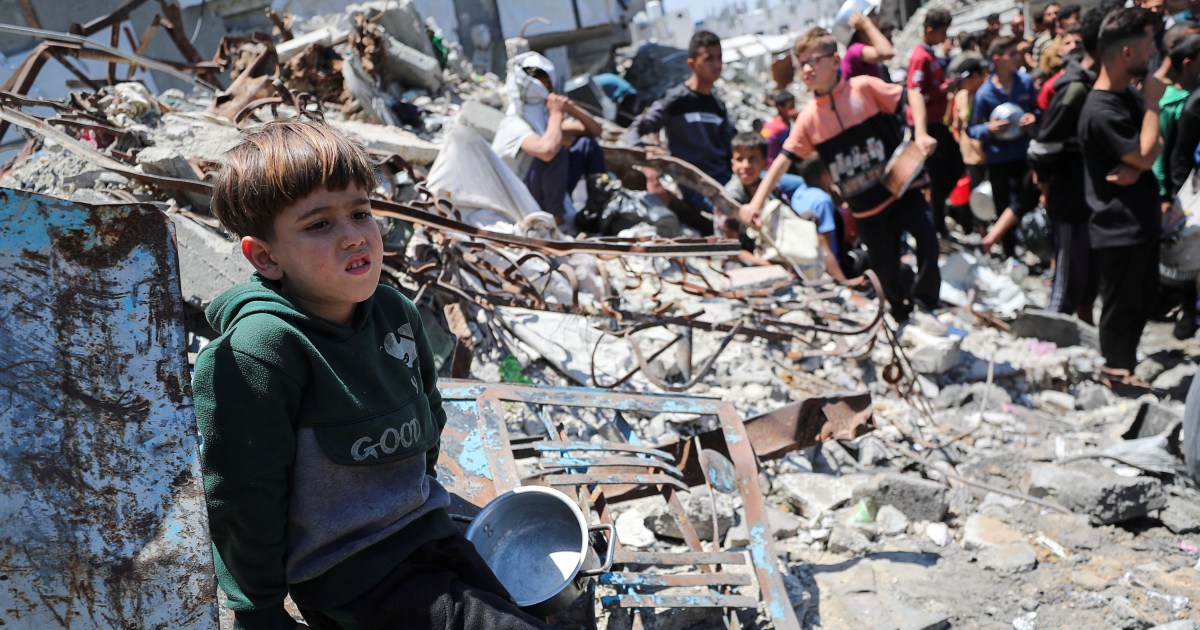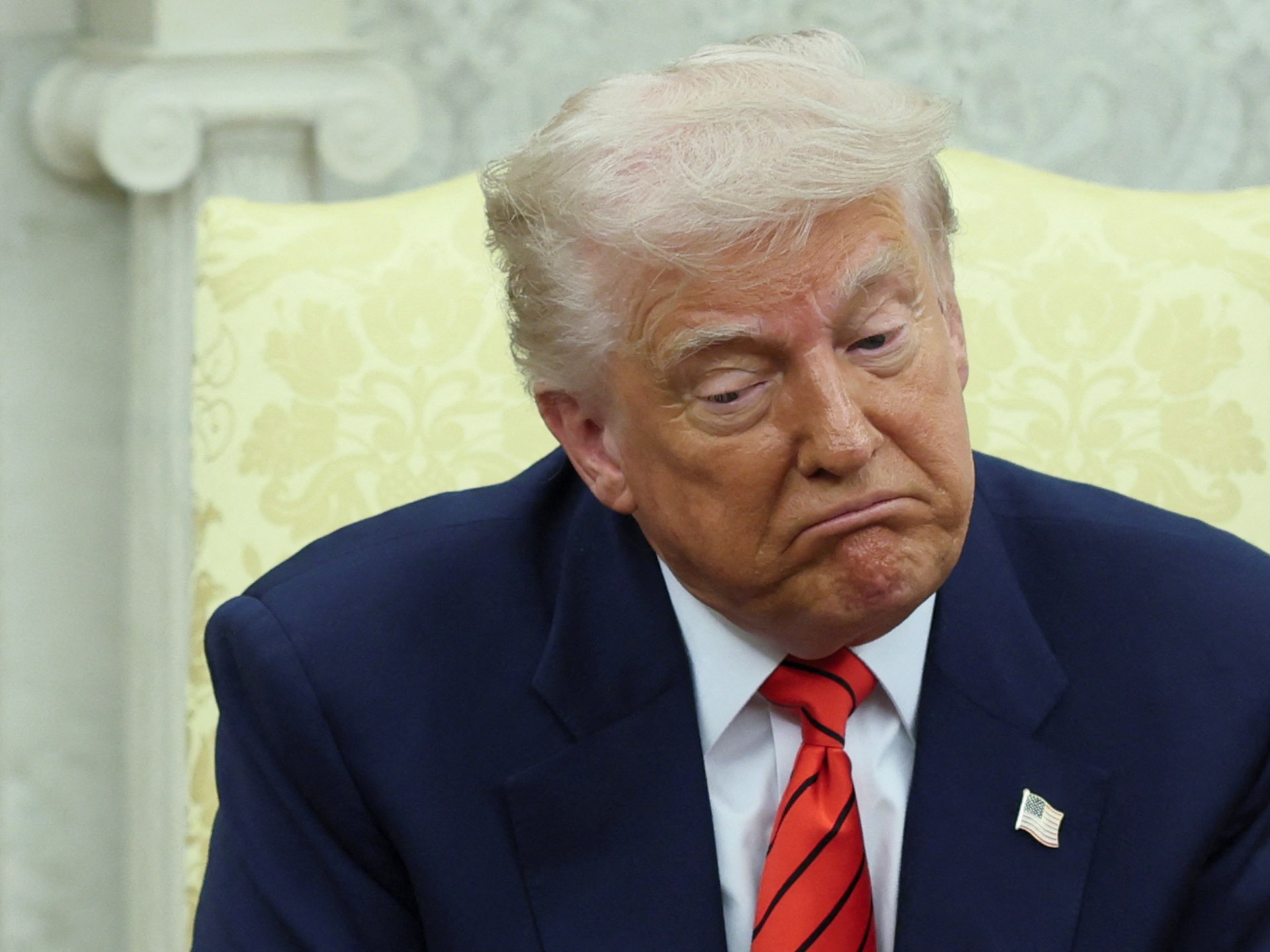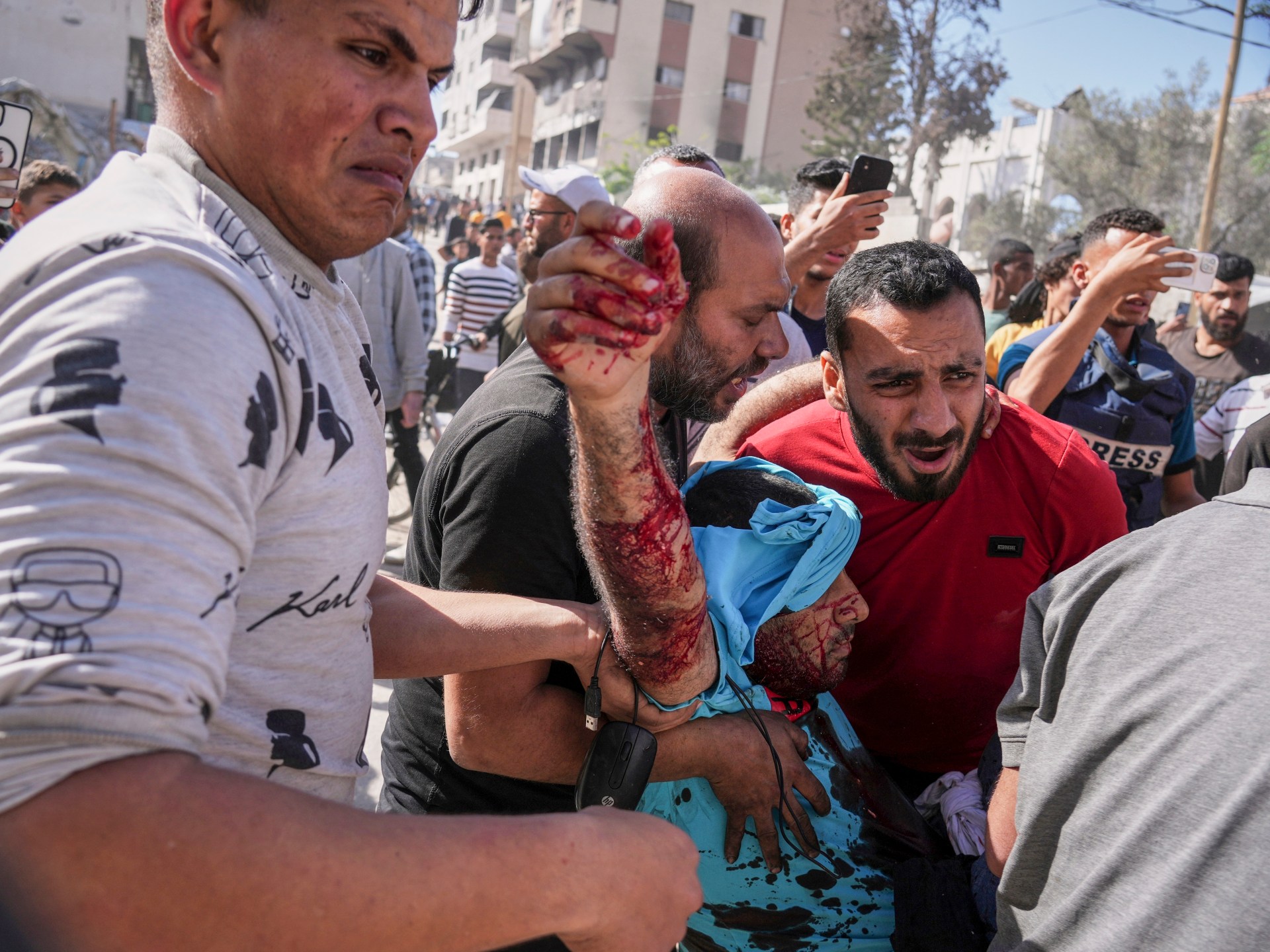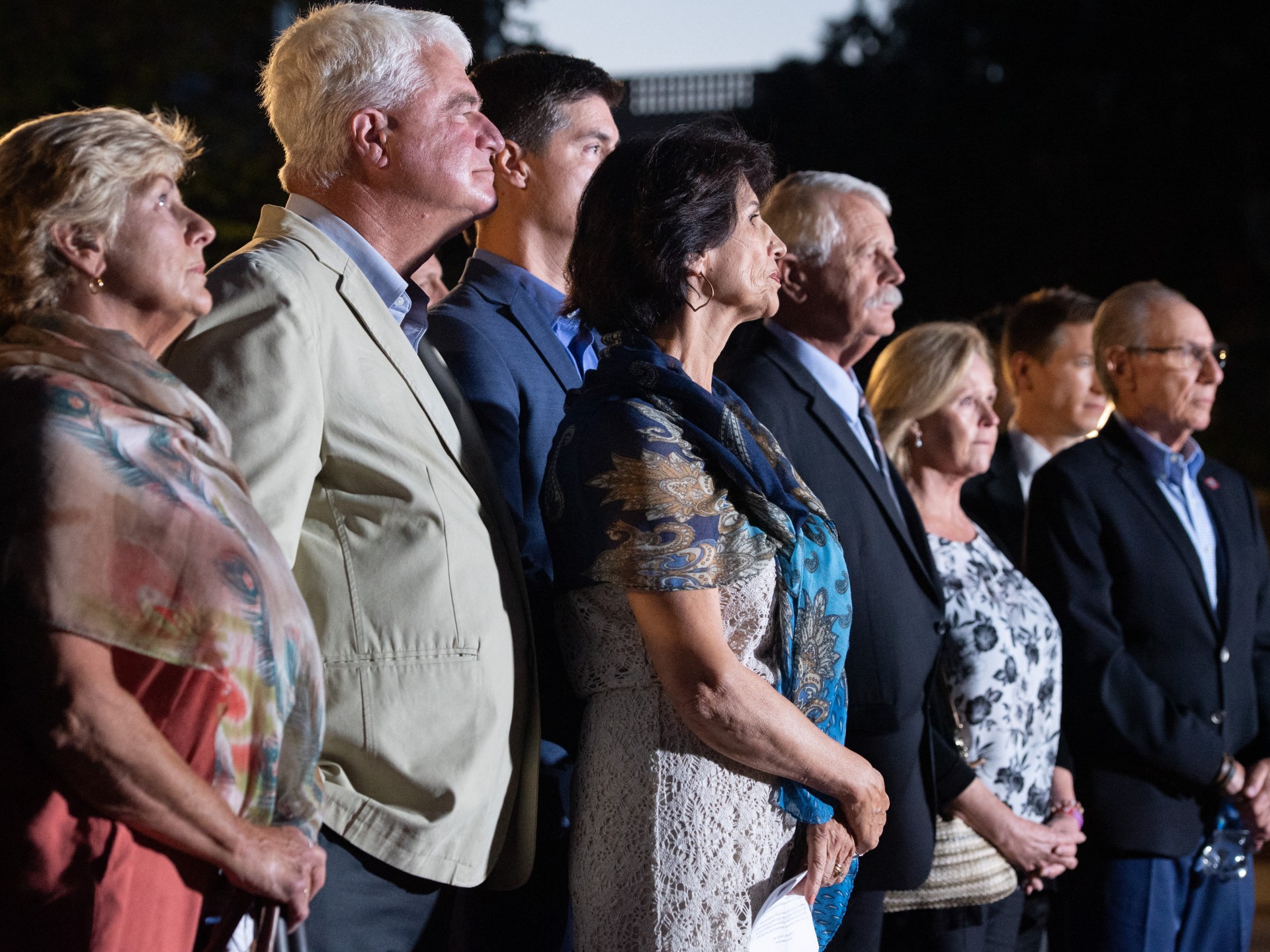Who: Liverpool vs Arsenal
What: English Premier League
Where: Anfield, Liverpool, United Kingdom
When: Sunday at 4:30pm local time (15:30 GMT)
Follow Al Jazeera Sport‘s live text and photo commentary stream.
Liverpool were crowned Premier League champions in front of their fans two weeks ago when Arne Slot’s side thrashed Tottenham Hotspur 5-1.
Now they face an Arsenal side wounded by not only their third consecutive second-place finish in the English top-flight but also their elimination from the Champions League on Tuesday.
Manager Mikel Arteta has come out fighting with regards to what the Gunners need to do to take the next step in their hunt for silverware – and that starts with their visit to face the Reds.
What has Arteta said ahead of the game?
Arteta has urged Arsenal to use the frustration of having to give champions Liverpool a guard of honour on Sunday as fuel to win the Premier League title next season after admitting they have gone “backwards” this term.
“Something has to drive you, motivate you, and pain for this is a good one to use when you really want to do something. It’s the right thing to do, usually as a motivation for next season,” Arteta said of Arsenal’s guard of honour for the champions.
“They’ve been the best team, they’ve been the most consistent, and what Slot and the coaching staff have done has been fascinating, it’s been really good.
“They fully deserve it, and that’s the sport. If somebody is better, you have to accept it and try to reach that level.”
What happened to Arsenal’s Champions League hopes?
The Gunners were beaten 2-1 by Paris Saint-Germain on Wednesday to end their bid to win the tournament for the first time.
It was a painful loss for Arsenal, who created a host of chances in the early stages of the second leg but could not find a way past inspired PSG keeper Gianluigi Donnarumma.
When did Arsenal last win the Premier League?
After finishing as runners-up to Manchester City for the previous two seasons, the north Londoners remain without a title since 2004.
What is Liverpool’s take on the game?
Liverpool are in cruise control in the Premier League with a 15-point gap to Arsenal in second.
The Gunners themselves are only six points from slipping out of the Champions League qualification positions.
Mathematically, the Gunners could finish as low as seventh, which would also mean they finish outside the Europa League qualification spots.
“Both teams look forward to playing this game. Difficult to predict,” Reds boss Slot said when asked what kind of game he expects.
“There is a little bit at stake for Arsenal, as I presume they would rather finish second than third or fourth. Difficult to predict if it will be edgy, but it is a game to look forward to.”
A month to remember ❤️
Alexis Mac Allister is April’s @EASPORTSFC Player of the Month 💪 #PLAwards pic.twitter.com/32PsArRp6D
What was the result in the reverse fixture?
The sides shared a 2-2 draw at Emirates Stadium in October.
Bukayo Saka and Mikel Merino twice gave the Gunners the lead, with Virgil van Dijk and Mohamed Salah coming up with the equalisers.
How can Arsenal bridge the gap?
Arsenal’s failure to sign a striker in the January transfer window was a big blow in a season marred by long injury absences for Kai Havertz, Gabriel Jesus and Bukayo Saka at various stages.
“In January, it was clear or not? I made a very clear statement, and the statement continues the same. I want the best team, the best players. If we have three goal scorers over 25, bring them in, we’re going to be a much better team, yes,” Arteta said.
“We are there, we are providing the numbers that win you titles. We have to be a little bit luckier, but still do better to make sure that nobody has a season better than you.”
Head-to-head
Arsenal have not won at Anfield since 2012 – a match that Arteta played in for the Gunners.
The north Londoners are, however, on a five-match unbeaten run against the Reds, winning two of those.
Liverpool team news
Right-back Conor Bradley will start the match, as revealed by Slot in his pre-match news conference. Trent Alexander-Arnold, who has announced he will leave the club this summer, is set to be named among the subs as a result.
Joe Gomez is the only other major absentee for the Reds.
Arsenal team news
Gabriel Jesus, Gabriel Magalhaes, Takehiro Tomiyasu and Kai Havertz all remain sidelined for the Gunners.
